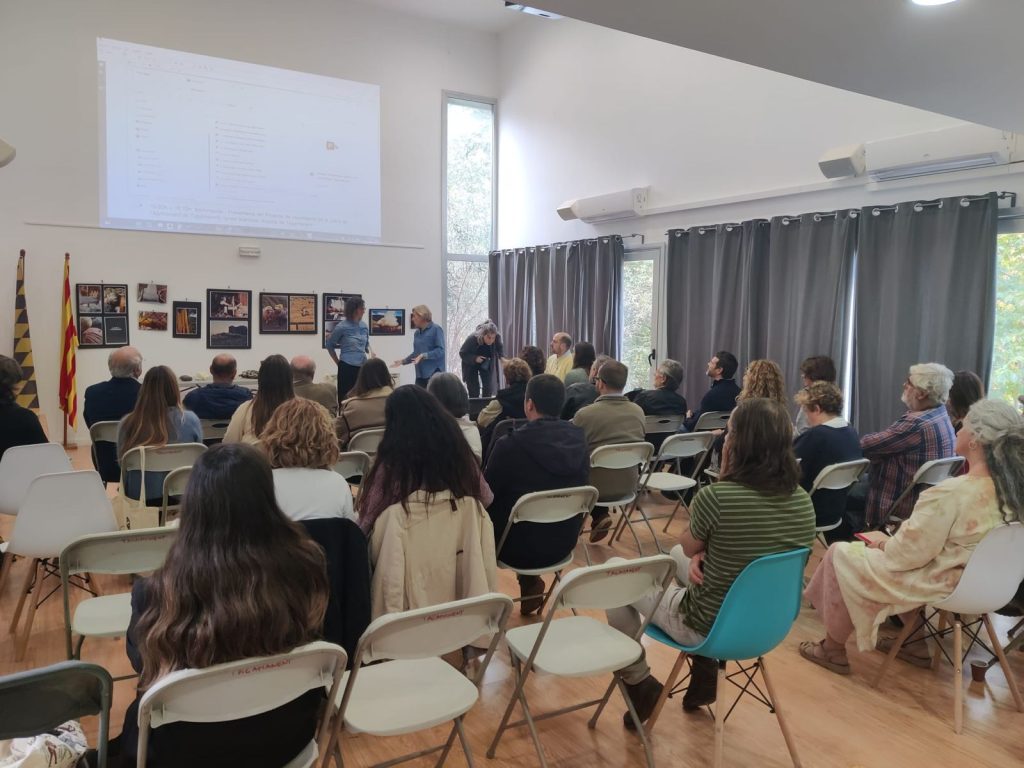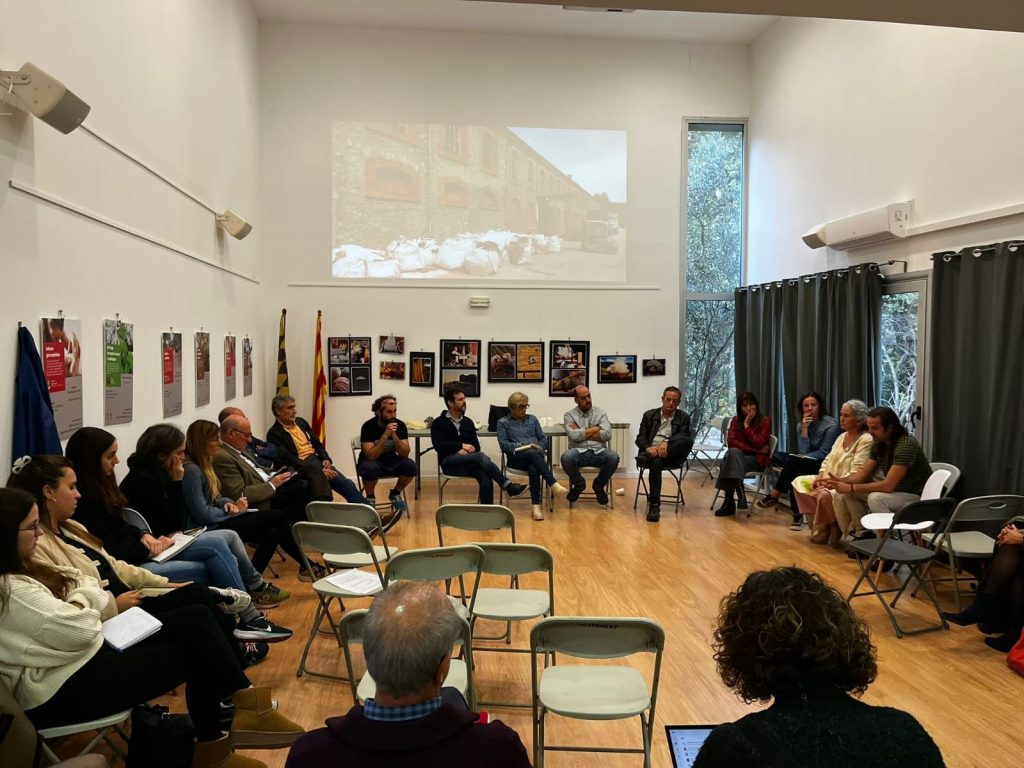On 30 October, Tagamanent became the meeting point for various experts and representatives from the public and private sectors, all with a common goal: to rethink and add value to the wool produced in Catalonia, which is currently undervalued and has limited viable uses. The Tagamanent Town Council, in collaboration with various entities and companies, led the event, where the needs, barriers, and opportunities for revitalising this industry within the framework of the circular economy and local development were discussed.

Opening of the Ssession with institutional welcome
Tagamanent’s mayor, Ignasi Martínez, inaugurated the session with a brief introduction to the wool valorisation project, emphasising the importance of finding local solutions to prevent wool from remaining a valueless waste. He highlighted the opportunity this initiative represents for the economic development of the area, leading into a series of presentations that contextualised the challenges and solutions for this industry.
Institutional support
Maria Vidal, a representative of the Catalan Waste Agency, was the first to speak. In her presentation, she addressed the circular economy initiatives promoted by the agency, emphasising the current state of Catalan wool: “Wool has no economic value in the traditional textile fashion sector, and logistical and processing costs are high,” explained Vidal. Her speech highlighted the need for unified efforts and coordination among all stakeholders involved.
Following her, Míriam González from the Technical Office of the Department of Agriculture, Livestock, Fisheries, and Food provided a perspective from the bioeconomy standpoint. She pointed out that wool has potential within Catalonia’s bioeconomy strategy, noting that projects like this help build a resilient agro-forestry landscape.
Bioboost: essential support to structure the value chain
Míriam Romero, coordinator of the Bioboost project, highlighted the essential role the initiative plays in supporting the wool valorisation project. Bioboost brings a systemic vision to the project, facilitating the identification and engagement of key value chain actors, working on business model studies for the wool washing plant, and offering legal advice for the establishment of an entity that ensures continuity beyond this meeting. This includes the proposal to create “RAMAT de la LLANA” (“The Wool Flock”), a collective of various agents in the value chain with a common goal: to develop processes for cleaning and preparing wool for new products, supporting the growth of markets for Catalan sheep wool.
Roundtable: experts analyse the market and opportunities for wool revalorisation
The second half of the event featured a roundtable moderated by Anna Lluís from Simbiosy, where experts debated the needs and barriers within the wool value chain. The participants provided diverse perspectives on the necessary steps to revitalise this sector in Catalonia:

- Daniel Palet, a consultant and trainer in the wool textile chain, offered a historical view of the wool industry in Catalonia and advocated for a comprehensive relaunch programme, with a practical, realistic approach. Palet stressed that a well-planned, medium-term effort involving all industry players is essential.
- Enric Carrera, director of the Textile Research and Industrial Cooperation Institute of Terrassa (INTEXTER), presented research advances applied to wool and emphasised the importance of establishing a small-scale wool washing pilot project. Carrera suggested that this pilot project would allow testing and adjusting machinery to meet the specific needs of the Catalan sector, adding that “this project could be a first step towards achieving industrial-scale wool washing.”
- Laia Aguilà from El Talleret del Clot discussed the use of wool in crafts and its contribution to local cultural identity. She highlighted the need for artisans to be able to source locally processed wool in small quantities to reduce both their ecological footprint and current logistical costs.
- Rosa Prat from Clau 21 and a member of the Bioconstruction Guild highlighted wool’s potential as an insulating material for sustainable building, underlining the need for it to be produced locally in Catalonia.
- Raul Ferré, a doctoral student researching the use of wool as an agricultural fertiliser, discussed its benefits for improving moisture retention and adding nutrients to the soil.
- Julio Perales, Technical & Product Segment Manager for Denim at ARCHROMA, spoke on the applications of wool in producing natural pigments and dyes.
- Miquel Casas and Josep Maria Saurí, representing shepherds’ associations from Ripollès and Montnegre and Corredor, respectively, provided the producers’ perspective, stressing the importance of generating a steady demand for wool to ensure the sector’s viability. They also noted their capacity to improve wool quality when it is destined for markets with high standards.
Conclusions and next steps
The event concluded with a consensus on the need for collaboration among all stakeholders to structure a solid value chain for Catalan wool. Participants emphasised that for the project’s success, it is essential for administrations, producers, traders, and researchers to work together to transform wool into a resource with added value. Tagamanent thus positions itself as a model in managing local resources and advancing the shift toward a circular economy.
Download the event presentations here (in catalan):